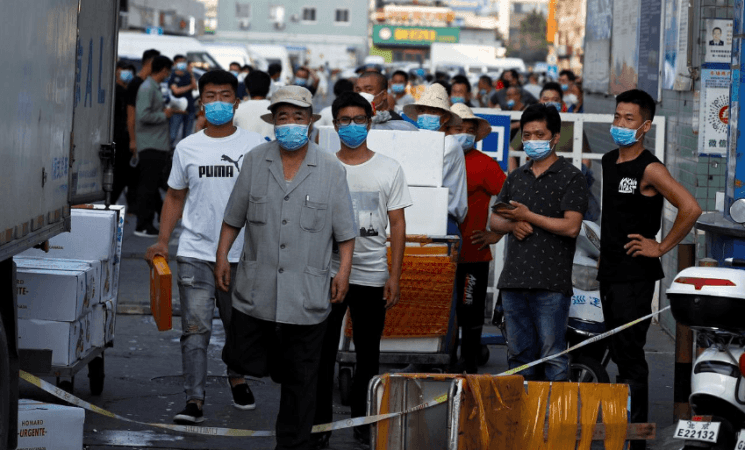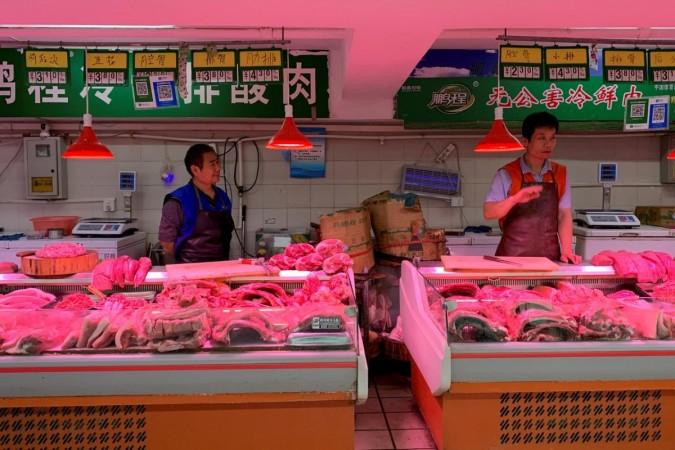China, where the first coronavirus case was reported before the entire world was gripped in the fear of its pandemic, managed to flatten the curve, but it looks like the new cases of coronavirus have reemerged in China's capital, raising serious concerns about the challenges of effectively stamping out the virus.
Beijing swiftly acted to contain the virus before another epidemic-like situation arose. Beijing closed down the largest wholesale food market after 45 workers tested positive while not showing any symptoms. The authorities have also locked down 11 residential communities near the Xinfadi market with proper fencing and police guarding the borders in an attempt to seal off the area. A paramilitary police force with vehicle barricades blocked the entrances of the food market and people were allowed after showing documents at the checkpoints.
According to Beijing News, the virus had been found on a chopping board for imported salmon, head of the Xinfadi market said. As a result, salmon were removed from the shelves across all major supermarkets.

Beijing in fear of second wave of COVID-19
Beijing confirmed six new domestically transmitted COVID-19 cases after the Chinese capital recorded its first domestic infected earlier in the week in almost two months, authorities said on Saturday. Apart from the two confirmed cases who are both employees of the China Meat Food Research Center in Fengtai district and were reported earlier on Friday, another four cases were reported between 4 p.m. and midnight, Xinhua news agency reported.
An epidemiological investigation showed that all of the four newly confirmed cases had been to the Xinfadi Wholesale Market of Farm Products in Fengtai District, said Pang Xinghuo, deputy director of the Beijing Center for Disease Prevention and Control, at a press conference.
All the newly confirmed COVID-19 cases have been transferred to designated hospitals in the capital for treatment, according to Pang. Meanwhile, Beijing's centers for disease control and prevention at both the municipal and district level have organized professionals to carry out investigations in wholesale markets of farm products and large supermarkets throughout the city.

A total of 5,424 samples of seafood, meat and other food as well as samples from the external environment were collected to take nucleic acid tests for COVID-19.
Forty environmental samples from the Xinfadi wholesale market tested positive, while the samples from other wholesale markets of farm products and large supermarkets in the capital tested negative, according to Pang.
As of Saturday, China, where the pandemic originated last December, recorded a total of 84,228 COVID-19 cases, with 4,638 deaths.
(Additional inputs from IANS included)

















